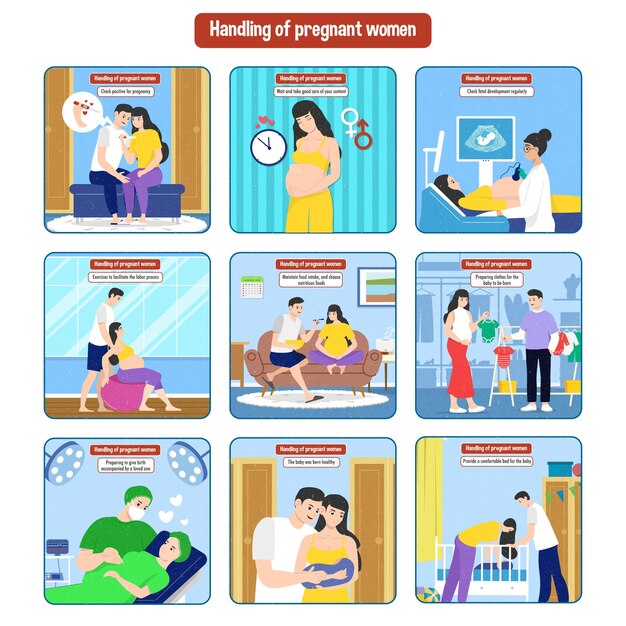First Trimester Screening Tests: What You Need to Know

The first trimester of pregnancy is a crucial time for both the mother and baby. During this period, your healthcare provider will likely recommend various screening tests to check for potential risks and ensure that everything is progressing normally. These tests are designed to provide important insights into the health of your baby and help detect any potential issues early. In this blog, we’ll take you through the most common first trimester screening tests, why they are important, and what you can expect.
1. What Are First Trimester Screening Tests?
First trimester screening tests are a set of blood tests and ultrasounds conducted in the early weeks of pregnancy, usually between weeks 11 and 14. These tests are designed to assess the risk of certain conditions, including chromosomal abnormalities like Down syndrome, trisomy 18, and neural tube defects. The results from these screenings can help your doctor provide a clearer picture of your baby’s health.
2. The Key Tests in the First Trimester
a) Nuchal Translucency Screening (Ultrasound)
What It Is:
A nuchal translucency (NT) ultrasound measures the amount of fluid at the back of the baby’s neck. Increased fluid may be a sign of a chromosomal condition like Down syndrome or other genetic disorders.
Why It’s Important:
The NT ultrasound, performed between weeks 11 and 14, is a non-invasive test that provides valuable information about your baby’s health. It is combined with other tests, such as blood work, to give a more comprehensive risk assessment.
What to Expect:
The procedure is similar to a regular ultrasound, where a gel is applied to your abdomen, and a transducer is moved over your skin to capture images of the baby. The procedure is usually painless and takes about 15-30 minutes.
b) Blood Tests (First Trimester Screening)
What It Is:
During the first trimester, blood tests are done to measure certain proteins and hormones in your blood. The two main proteins measured are:
- PAPP-A (Pregnancy-Associated Plasma Protein A)
- hCG (Human Chorionic Gonadotropin)
Why It’s Important:
The levels of these proteins can provide important clues about the risk of certain chromosomal abnormalities. For example, lower-than-normal levels of PAPP-A and higher-than-normal levels of hCG could indicate an increased risk for conditions like Down syndrome.
What to Expect:
Blood is drawn from your arm, usually between weeks 9 and 13 of pregnancy. The test is simple and quick, with results typically available within a week.
c) Combined Screening (Nuchal Translucency + Blood Test)
What It Is:
The combined screening test involves both the NT ultrasound and the blood tests. This combination provides a more accurate risk assessment for chromosomal abnormalities, such as Down syndrome, trisomy 18, and other conditions.
Why It’s Important:
Using both tests together increases the accuracy of detecting potential abnormalities. Combined screening allows your healthcare provider to give you a more thorough understanding of your baby’s health and potential risks.
What to Expect:
You’ll undergo both the blood test and ultrasound in a single appointment. The results will typically be available within a few days to a week.
3. Understanding the Results
The results of your first trimester screening tests are usually presented as a risk assessment rather than a definitive diagnosis. For example, you may be given a number that represents your risk of having a baby with a certain condition, such as "1 in 1000" for Down syndrome.
What the Results Mean:
- Low Risk: A low-risk result means that the likelihood of the baby having a chromosomal condition is relatively low, though it does not completely eliminate the possibility.
- Increased Risk: If the results suggest an increased risk, your doctor may recommend further testing, such as an amniocentesis or chorionic villus sampling (CVS), to obtain a more definitive diagnosis.
It's important to understand that these screening tests are not diagnostic. They only estimate the likelihood of a condition being present, and many babies with abnormal screening results are born healthy.
4. Why Are These Tests Important?
These early screening tests are important for several reasons:
- Early Detection: The sooner potential issues are identified, the sooner you can begin to plan for any necessary interventions, treatments, or lifestyle adjustments.
- Informed Decision-Making: Understanding the risks allows you and your healthcare provider to make more informed decisions about your pregnancy care. If the tests indicate an increased risk of a chromosomal abnormality, you may consider further testing or genetic counseling.
- Peace of Mind: For many parents, the results from first trimester screening tests can provide reassurance and reduce anxiety, especially if the results show low risk.
5. Are First Trimester Screening Tests Required?
First trimester screening tests are optional and are not required for all pregnancies. Some women may choose not to have these tests, while others opt for them based on personal preference, family history, or previous pregnancies. It’s essential to discuss the benefits and limitations of these tests with your healthcare provider to make the best decision for your situation.
6. What If the Results Are Abnormal?
If your screening results show an increased risk of a chromosomal condition, you may feel overwhelmed or anxious. It’s important to remember that these tests do not provide a definitive diagnosis, but rather an estimate of risk.
If the results suggest a higher-than-normal risk, your doctor may recommend additional diagnostic tests, such as:
- Amniocentesis: A procedure that involves taking a sample of amniotic fluid to test for genetic conditions.
- Chorionic Villus Sampling (CVS): A test that takes a sample of the placenta to test for genetic abnormalities.
These tests are more invasive and carry some risk, so they are usually only recommended if the screening results suggest an increased risk.
7. How to Prepare for First Trimester Screening Tests
Preparation for first trimester screening tests is generally straightforward. For the NT ultrasound, you don’t need to do anything special beforehand. However, for the blood tests, you may be asked to avoid eating for a few hours before the test, depending on the specific test.
What to Bring:
- A list of any medications you are currently taking
- Your insurance information, if applicable
- Any questions or concerns about the tests that you’d like to discuss with your doctor
Related Articles

Baby development at 34 weeks

Baby development at 31 weeks

The Relationship Between Exercise and Your Menstrual Cycle

The Ultimate Guide to Getting Pregnant: Fertility Tips, Timing, and Lifestyle Changes

How to Share the News: Announcing Your Pregnancy in the First Trimester

Baby development at 28 weeks

How Your Menstrual Cycle Changes with Age

What to Expect During Your First Period